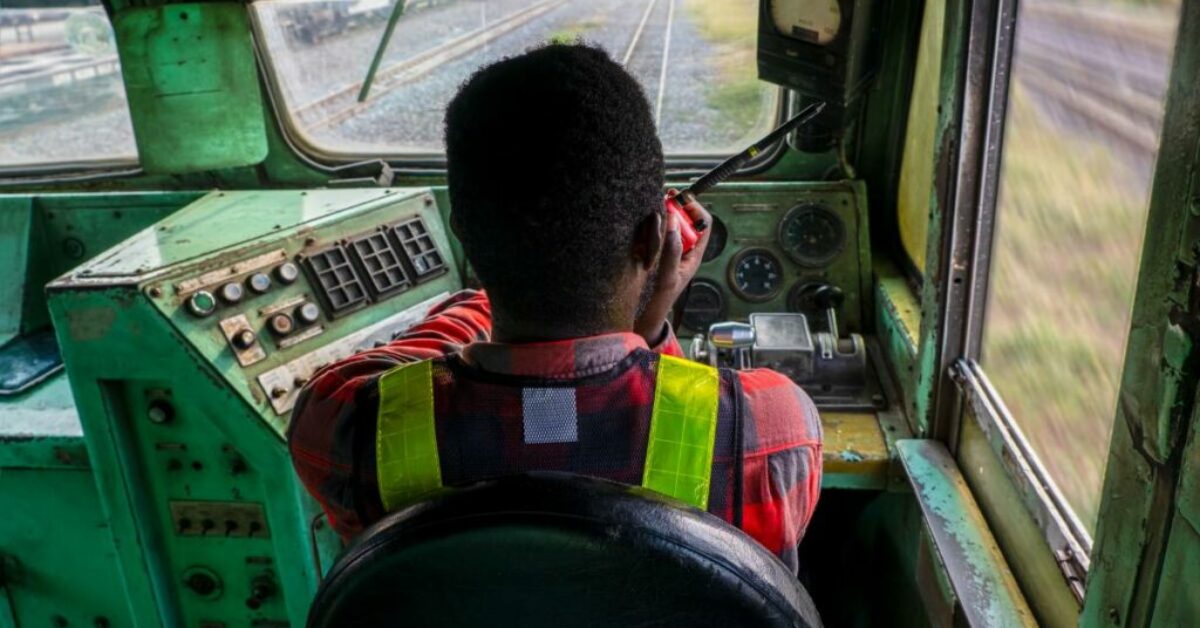How To Become A Train Engineer?
If you’re passionate about trains and have always dreamed of operating one, becoming a train engineer might be the career for you. Train engineers are responsible for operating locomotives and ensuring that trains reach their destinations safely and on time. In this article, we will provide you with a step-by-step guide to becoming a train engineer, including the skills and qualifications required for the job.
Steps To Becoming A Train Engineer
To become a Train Engineer follow these steps:
- Earn a High School Diploma or GED
The first step to becoming a train engineer is to obtain a high school diploma or GED. With a high school diploma or equivalent, you can go on to earn the necessary certification or degree to work as a train engineer. Most railroads require their employees to have a minimum of a high school education, so it’s an essential component of the process.
However, having a high school diploma is not the only requirement for becoming a successful train engineer. You also need to have a strong work ethic, be detail-oriented, and have excellent communication skills. These skills are essential for ensuring the safety of the train and its passengers. - Enroll in a Training Program
The next step is to enroll in a training program that will teach you the skills necessary to operate a locomotive. These programs usually last between two and six months and include both classroom and hands-on instruction. During the training program, you will learn about the different types of locomotives, how to operate them, and how to handle emergency situations.
It’s important to note that the training program is not just about learning how to operate a train. You’ll also learn how to read maps and schedules, how to communicate with dispatchers and other crew members, and how to troubleshoot problems that may arise during your journey. - Gain On-the-Job Experience
After completing your training program, you’ll need to gain on-the-job experience. This can be achieved by working as a conductor or brake operator for a railroad company. By working your way up to the position of train engineer, you’ll gain the necessary experience and knowledge to operate a locomotive on your own.
During this time, you’ll also learn about the different types of cargo that trains transport, such as coal, grain, and automobiles. You’ll learn how to secure the cargo and ensure that it arrives at its destination safely and on time. - Obtain Certification
Finally, you’ll need to obtain the necessary certification to work as a train engineer. This typically involves passing a written examination and a physical examination to ensure you’re physically capable of operating a locomotive safely. Once you’ve passed your certification exam, you’re ready to start your career as a train engineer.
Overall, becoming a train engineer is a challenging but rewarding career path. It requires a lot of hard work and dedication, but it’s a job that offers excellent pay and benefits. If you’re passionate about trains and enjoy working in a fast-paced, dynamic environment, then becoming a train engineer might be the perfect career for you.
Skills Needed For Becoming A Train Engineer
Becoming a train engineer requires a unique set of skills that goes beyond just operating a locomotive. A train engineer must be familiar with safety regulations, teamwork, and communication skills. In addition, they must possess excellent vision, depth perception, and hand-eye coordination. However, these skills are just the tip of the iceberg when it comes to what it takes to be a successful train engineer.
Working as a train engineer requires a great deal of physical stamina and endurance. Train engineers must be comfortable working outdoors in all types of weather and be physically capable of walking, bending, and standing for long periods. They must also be able to climb ladders and navigate narrow walkways while carrying heavy equipment.
Good decision-making skills are a must for train engineers. They must be able to make quick decisions in high-pressure situations to ensure the safety of passengers and crew members. In addition, train engineers must be able to handle stress and emergencies calmly and efficiently. The ability to communicate effectively with other crew members is also essential for a train engineer.
Train engineers must be able to work well in a team environment. They must be able to communicate effectively with other crew members, including conductors, brakemen, and dispatchers. They must be able to follow directions and work together to ensure the safe operation of the train.
Being a train engineer also requires a great deal of mental focus and attention to detail. Train engineers must be able to monitor gauges, dials, and other instruments to ensure that the train is operating safely and efficiently. They must also be able to detect and respond to potential problems before they become emergencies.
Becoming a train engineer requires a unique set of skills that goes beyond just operating a locomotive. From physical stamina to mental focus, train engineers must possess a wide range of skills to ensure the safe and efficient operation of a train. If you’re interested in pursuing a career as a train engineer, be prepared to develop and hone these skills over time.
What is A Train Engineer?
A train engineer is a highly skilled professional who is responsible for operating a locomotive and ensuring that trains are driven safely and reach their destinations on schedule. Train engineers are an integral part of the transportation industry and play a vital role in keeping the economy moving.
Train engineers are responsible for the overall safety of the train, its crew, and passengers. They must be highly attentive and vigilant at all times to ensure that the train is running smoothly and that all safety protocols are being followed. They are required to comply with all federal and local regulations and inspect the train before departure to ensure that everything is in working order.
Train engineers are also responsible for communicating with other crew members to ensure that everything is running smoothly. They work closely with conductors, brakemen, and other crew members to ensure that the train is operating at peak efficiency. They must be able to adjust the speed of the train, provide necessary input to the conductor, and apply the brakes when needed.
Train engineers must be highly skilled and knowledgeable about the trains they operate. They must be able to read and interpret complex technical manuals and understand the intricacies of the machinery they operate. They must also be able to troubleshoot and solve problems quickly and efficiently.
Without a train engineer’s expertise, trains would not be able to operate safely, and passengers and cargo would not make it to their destinations. Train engineers are the unsung heroes of the transportation industry, and their hard work and dedication are crucial to keeping the world moving.
The Benefits of Working as A Train Engineer
Working as a train engineer offers several benefits, including job stability and growth opportunities. As long as people and cargo need to be transported across the country, the demand for train engineers will remain steady. Train engineers can also earn a good salary, with many starting at around $50,000 per year and earning up to $100,000 or more with experience.
Train engineers also have unique work schedules, with many working a 40-hour week that is spread over several days. Train engineers often work early mornings, evenings, weekends, and holidays, providing a change of pace from the traditional 9-to-5 workweek. Additionally, train engineers may enjoy seeing different parts of the country regularly.
Another benefit of working as a train engineer is the opportunity to work with advanced technology. Train engineers use cutting-edge equipment to operate trains and ensure safety on the tracks. They must be proficient in using various computer systems, communication devices, and other high-tech equipment.
Train engineers also have a great sense of responsibility, as they are responsible for the safety of their passengers and cargo. They must be highly skilled, well-trained, and able to make quick decisions in emergency situations. Train engineers undergo rigorous training and certification processes to ensure they are prepared for any situation that may arise.
Working as a train engineer also allows for a sense of independence and autonomy. Train engineers are often the only ones on the train, meaning they must be self-sufficient and able to handle any issues that may arise. They must be able to work independently and make decisions on their own, without the need for constant supervision.
Finally, working as a train engineer offers the opportunity for career advancement. Train engineers can work their way up to higher positions, such as a chief engineer or a management role. They can also specialize in certain types of trains or cargo, such as freight or passenger trains.
Working as a train engineer offers a unique and rewarding career path. From job stability and good pay to advanced technology and independence, there are several benefits to this profession. Train engineers play a vital role in transporting people and goods across the country, and their skills and expertise are highly valued in the industry.
Becoming a train engineer requires specific skills, education, and certification. However, for those who have a passion for trains, enjoy traveling and working outside, it can be an incredibly rewarding career path. If you’re interested in becoming a train engineer, start by obtaining your high school diploma or equivalent and enrolling in a training program. Gain relevant work experience and pass the necessary certification exams to start your career as a train engineer.




